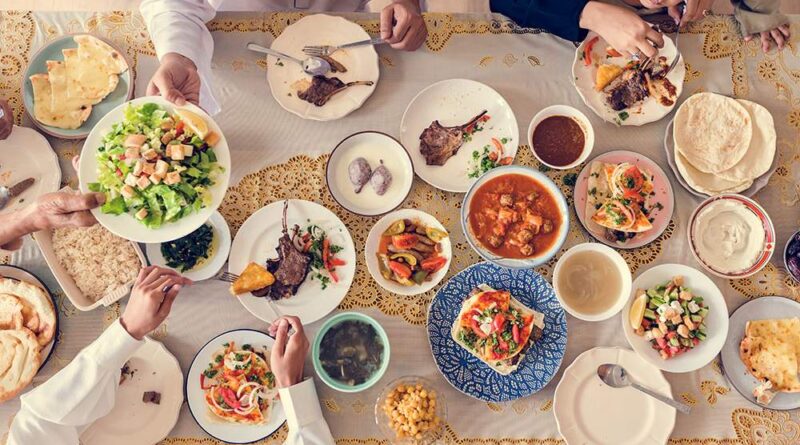The month of Ramadan is the best month of treatment
The month of Ramadan is undoubtedly a holy month and it is the duty of all Muslims to protect the sanctity of Ramadan. Islam is a beautiful and simple religion that has made people’s lives easier. Islam never oppresses anyone for that there are rules. If the disease increases during fasting, fasting is considered inappropriate. In this situation, it is important to break the fast. Allah Ta’ala says, ‘Do not kill yourselves. Undoubtedly, Allah is Most Merciful to you.
A old person or an incapacitated person suffering from a disease from which there is no possibility of recovery will pay two and a half sers of wheat (the amount of Fitrah) or an equivalent value in lieu of each fast. In Islamic terms it is called Fidya. (Jawahirul Fiqh, Volume : 01, Page : 29)
In this context, Allah Ta’ala says – The duty of the weak is to give fidya, it is to give food to a poor person.
(Surah Baqarah, verse: 184)
Fasting is not necessary for the very old. But that person will pay Qaza to someone else or pay fidya. For each fast a poor person will be fed one meal.
The donation given by a person unable to fast is called ‘Fidiya’. If an adult Muslim of common sense is unable to fast due to old age or illness or any other reason and is not likely to recover and perform the qaza of the fast, he shall pay a fidya equal to one sadaqat al-fitr for each fast.
The fast of one cannot be observed by the other, so Fidya is not a fast instead of a fast; Fidya is the giving of food or its value in lieu of fasting. Fidya is a monetary donation or charity in lieu of fasting. Therefore, it is not necessary for the one who is given fidya to fast, such as: a minor, a poor child or an old, weak and disabled, sick, helpless, poor person, who himself is unable to fast.
The amount of Fidya is one Fitrah amount for each fast. Regarding the amount of Fitr, it is stated in Hadith Sharif, ‘Sadakatul Fitr’ is one Sa’ (3 kg 300 g) of food or food. Abu Sayyid Khudri (RA) said, “Our food was dates, raisins, cheese and barley (Bukhari, Volume: 1, Pages: 204-205).”
If the blood sugar or blood sugar level decreases while fasting, then you must immediately break the fast and eat sugary foods to increase the blood sugar. Because if there is a shortage of sugar in the brain even for a short period of time, it can cause permanent damage. Then make up the broken fast according to religious rules.
Diabetics are usually given two doses of medication. However, people who take insulin three times a day are considered to have advanced diabetes. Fasting is not possible in such patients.
If it is difficult to pray more during fasting, then taking modern physiotherapy with the advice of a physiotherapy specialist can help you to be free from pain or depression to a large extent.
People suffering from spinal problems, knee-hip-neck pain arthritis or paralysis have nothing to be disappointed with this fast.
Prayer is the best exercise:
If you pray regularly, you can be free from neck-hip-knee pain to a large extent. And those suffering from rheumatic pain can apply 5 to 10 minutes of warm water or cold water to the painful area.
You can take scientific based physiotherapy, there will be no problem in fasting. If it is difficult to pray for a long time or at the end, you can sometimes pray on a chair. And Surah Tarabi prayers can be read normally.
Fatty and oily food should not be eaten at Iftar. Eat fruits, juices or drinks instead. It will provide quick energy.
The month of Ramadan is the best healing month for those who are overweight. Weight can be easily reduced by 5 to 10 kg in this month. If necessary, a specialist can take the advice of the doctor.
Apart from fasting, disease control is possible only by changing the medicines used for various diseases:
Fasting in the month of Ramadan is worship, because it is the command of Allah. Fasting is called the door of worship in Hadith Sharif. Rasulullah (S.A.W.) has pointed out the importance and characteristics of worship in the month of Ramadan, ‘O people! A glorious month has overshadowed you. One night of this holy month is better than a thousand months in terms of blessings and virtues. Allah Ta’ala has made fasting this month obligatory and standing in front of Allah in its nights is a nafl worship. A person who performs Sunnah or Nafal worship without the obligatory worship during the night of Ramadan, will be given the same reward as the obligatory worship during other times. And the person who fulfills any obligation in this month, he will get merit equal to 70 obligatory acts of other times.’ (Bayhaqi)
Fasting is not only a month of self-purification, but also a month of self-control. Discipline is established in the body by conducting itself according to certain rules. In order to overcome the effect of abstaining from food and drink from sunrise to sunset during fasting, the body has to operate in a different way during this time.
Special changes should be made in food intake during this time. Traditionally, not all of the foods we eat at Sehri and Iftar are appropriate. Among these foods there are some foods which are not healthy. There are also some foods that are healthy or nutritious but not appropriate.
Since you have to go without food for a long period of the day, it is necessary to eat nutritious food and drink water as much as possible during Sehri and Iftar. Many fast without Sehri, which can lead to health risks.
According to the doctor, it is important to have Sehri and Iftar in the right way to stay healthy during Ramadan. It may increase health risks for those who fast without Sehri. Many people suffer from flatulence, gas or digestive problems during Ramadan. And behind all these are unhealthy eating habits.
According to nutritionists, one should eat balanced food, drink water slowly during Sehri. It is beneficial to eat as much vegetables, protein-rich foods as possible – fish, meat, eggs, pulses and milk.
Since water cannot be drunk throughout the day, doctors advise to focus on ensuring body moisture. Drink water slowly in Ramadan. Drinking too much water at once can increase the pressure on the kidneys. So be careful. Eating heavy or oil-spiced food at Iftar can cause various problems in the body.
After fasting for the whole day, nutritious food should also be eaten at Iftar. Ifatar food should be eaten slowly, taking some time and chewing well. In hot body sweat. Therefore, liquid-type food and water should be consumed to meet the water requirement of the body at Iftar. It is best not to drink outside juices or artificial drinks during this time.
After noon, people’s digestion becomes weak. So it is not right to eat gourmet and heavy food at Iftar. Moreover, the metabolic rate also decreases during this time. Easy to digest and less spicy food should be eaten at Iftar. Nutritionists recommend starting Iftar with water or fresh fruit juice and eating dates.
Dates increase the amount of sugar in the body and its ‘enzymes’ help in digestion. Also eating other fresh fruits fills the deficiency of fiber, minerals and vitamins in the body.
Any sweet fruits and sherbets should be taken with water first in Iftar. Then wait five to 10 minutes and start eating the main meal. Because it takes some time for the sensation of food to reach the brain. So eating food in a hurry with the start of iftar leaves the possibility of overeating which is not right at all. There is a possibility of weight gain and accumulation of fat in the body.
It is better to eat foods that keep the stomach cool, such as dudhchira, curd-chira or muridi. Yogurt is good for the stomach. Those who like biryani or tehri should be a little aware. Because these foods at Iftar cause problems in digestion and increase the risk of gastric. So you should not eat food that heats the stomach. Foods that keep the stomach cool should be consumed to avoid stomach problems. Canned water, tokma, isabgul and fresh fruit juice are very beneficial. You can eat more of them.
Avoid excessive tea or coffee and soft drinks after Iftar. Because excess tea and coffee cause dehydration in the body.
There is no substitute for staying hydrated during fasting days. So it is good practice to drink little water and eat fruits as much time as possible from after Iftar to Sehri, it keeps the body healthy.
According to the doctor, one should be careful about three things. That is, in addition to paying special attention to food and water, light exercise should be done and rest as much as possible.
Exercise should be done at least one hour after Iftar during Ramadan. You don’t have to struggle or jump; you have to exercise like that. Especially the abdominal muscles, arms or legs can be exercised. People with diabetes or those who want to walk as part of their routine, should also walk at least one hour after Iftar.
It should be noted that during fasting, no exercise can be done that causes excessive sweating or heart palpitations. It is better not to do any exercise during the day due to fasting during summer. Then there will be no risk of dehydration.
Light exercise should be done during Ramadan. Such as light exercises of hands or feet, yoga exercises etc. If someone wants to do heavy exercise, weight lifting or cycling, I would advise them to do it after iftar.
Experts said that special precautions need to be taken in exercising without taking any food or water throughout the day. Besides, this year’s Ramadan is during summer, so extra precautions are needed
Those who want to exercise regularly during fasting should include sugary foods in their diet. Iftar, dinner and last supper must include sugary foods, which provide quick calories.
Iftar should include canned water, eggs, complex carbohydrates. After fasting all day, this kind of food will give energy to the body quickly. After dinner brown rice, chicken and sehri must be consumed three to four liters of water. If one wants to eat sweet food, it should be eaten after night exercise.
Take a nap after noon every day during fasting. Then your body will not collapse due to the fatigue of fasting. The best time for daytime sleep is between the Asr prayer and the Zohr prayer.
Studies have shown that most of the time fasting people get sick due to not taking proper food. This illness occurs especially due to excessive food intake. In addition, insufficient sleep puts the body in some trouble. According to the researchers, it is very easy to avoid these physical problems during fasting.
This problem arises from the mindset that you have to eat the whole day’s meals together after fasting. In this context, experts say, it must not be forgotten that the stomach has a certain volume and capacity to hold food. Because even after not eating for one day, three days, the stomach will not be able to absorb more food than it can handle. If you play too much, it will cause problems. Therefore, the first advice of the researchers is to avoid overeating during Sehri and Iftar.
The body’s regulation mechanism automatically lowers the metabolic rate during fasting, and stored body fat is used to suppress appetite. When it comes to food during fasting, most of the people focus more on eating tasty food, but do not remember to have a balanced diet.
In order to stay healthy during fasting, a food list should be prepared by combining all types of food. In particular, flour or rice, milk and dairy products, fish, meat and eggs, grains, vegetables and, above all, fruit should be kept. This study specifically advises on eating fruit after both Sehri and Iftar.
Researchers say the simpler the fasting food, the better. Fasting is a way to lose weight for overweight people. But due to overconsumption, that objective often fails.
Complex carbohydrates or complex sugars should be taken at Sehri as there is a long period of fasting during fasting. These complex carbohydrates are digested slowly and take about 8 hours to digest. As a result, hunger is felt less during the day. Complex carbohydrates include whole grains or legumes, unrefined or unrefined flour, flour, and brown rice.
Refined sugars are digested quickly and stimulate the body by increasing blood glucose levels quickly. Digestion of such food takes three to four hours. So such food should be taken at Iftar. Fast-digesting sugary foods include refined flour and sugary foods. Dates can be one of the foods of Iftar. Dates are a source of sugar, fiber, carbohydrates, potassium and magnesium. Two or three dates at Iftar can give the body a quick boost. However, you have to drink a lot of water.
The body will be healthy only if you take balanced food in quantity during fasting.
Due to illness, many people may not be able to fast even if they want to. There are many who have controlled diseases like hypertension, asthma, peptic ulcer or diabetes by taking treatment. Many of such people are unable to fast despite their desire due to lack of proper guidance. According to experts, it is very easy to fast in diseases which can be controlled by medicine. According to doctors, people suffering from these diseases can fast if they want. It is possible to control or cure the disease along with fasting only by changing the medicines used for various diseases.






